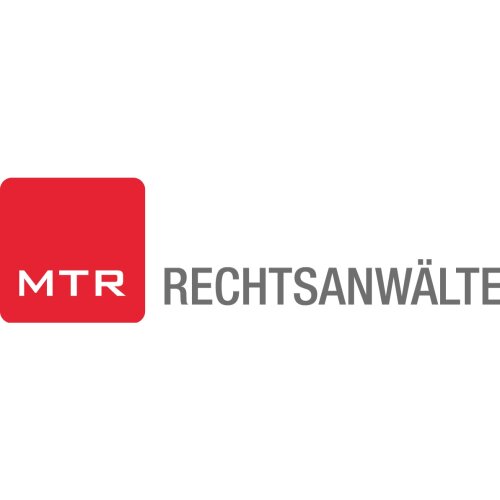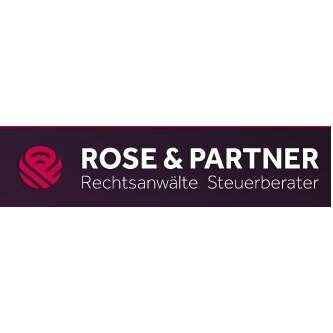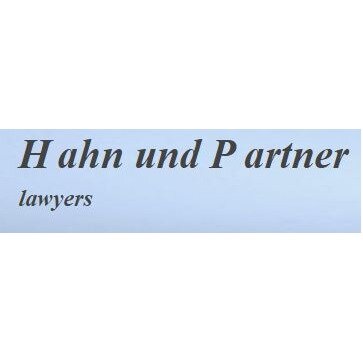Best Project Finance Lawyers in Hamburg
Share your needs with us, get contacted by law firms.
Free. Takes 2 min.
List of the best lawyers in Hamburg, Germany
About Project Finance Law in Hamburg, Germany
Project finance refers to the funding of large-scale infrastructure and industrial projects based on the projected cash flows of the project rather than the balance sheets of its sponsors. In Hamburg, a major hub for maritime, renewable energy, logistics, and infrastructure projects, project finance law plays a crucial role in structuring, negotiating, and documenting complex financings. The legal landscape in Hamburg is shaped by both German federal laws and European Union regulations, which together create a robust framework to ensure project viability, lender protection, and compliance with local commercial and environmental standards.
Why You May Need a Lawyer
Project finance transactions are inherently complex and often involve multiple parties, including sponsors, lenders, contractors, and government entities. You might require legal assistance in the following situations:
- Structuring or negotiating project finance deals for infrastructure, renewable energy, shipping, or industrial projects in Hamburg
- Navigating regulatory approvals, permits, or environmental compliance for new developments
- Drafting or reviewing project finance agreements, such as loan agreements, security packages, shareholder agreements, or EPC (Engineering, Procurement, and Construction) contracts
- Advising on risk allocation, liability matters, and dispute resolution between project stakeholders
- Handling cross-border financing arrangements and currency risk management
- Securing financing from public or private sources, including international financial institutions
- Ensuring tax efficiency and compliance with local and EU requirements
- Addressing restructuring or refinancing during the project lifecycle
Local Laws Overview
Project finance in Hamburg operates under German commercial law, primarily outlined in the Bürgerliches Gesetzbuch (BGB - German Civil Code) and Handelsgesetzbuch (HGB - Commercial Code), alongside sector-specific regulations and EU directives. Key legal aspects include:
- Security Interests: German law permits the granting of security over assets, receivables, and shares to protect lenders. Mortgages and land charges are common for real estate-heavy projects.
- Contractual Freedom: Parties are generally free to negotiate the terms of their contracts, provided they do not contravene mandatory statutory provisions.
- Permits and Environmental Law: Projects must comply with German and EU environmental laws, often requiring extensive impact assessments and various governmental permits before commencement.
- Taxation: Project structures must adhere to German taxation rules, with particular attention to VAT, withholding taxes, and financial structuring to optimize project returns.
- Public-Private Partnerships (PPP): Hamburg has frameworks for PPPs, allowing collaboration between government and private investors, often in infrastructure and public services.
- Dispute Resolution: German courts, as well as arbitration institutions, are frequently involved in project finance disputes. Hamburg, as an international trading city, offers robust legal infrastructure for dispute management.
Frequently Asked Questions
What is project finance, and how does it work in Hamburg?
Project finance is a method of funding projects where repayment relies mainly on the project's future cash flows, not the sponsors' credit. In Hamburg, it is commonly used for infrastructure, energy, and maritime projects, involving structured contracts and legal frameworks tailored to managing project-specific risks.
Which types of projects are typically financed this way in Hamburg?
Commonly financed projects include renewable energy parks (e.g. wind and solar), port infrastructure, industrial plants, and public transportation systems. Hamburg's status as a port city also encourages shipping and logistics projects.
What parties are usually involved in a project finance transaction?
Typical parties include the project sponsor or developer, lenders (e.g., banks or institutional investors), contractors, government agencies, and sometimes multilateral financial institutions.
Why is legal due diligence important in project finance?
Legal due diligence identifies potential legal obstacles, regulatory requirements, and contractual risks, ensuring that all project documentation is sound and enforceable.
How does German law protect lenders in project finance?
Lenders are protected through security agreements, such as pledges over project assets, receivables, or shares. German law supports robust enforcement of these rights provided proper documentation is in place.
What permits or approvals are needed for large projects in Hamburg?
Permits may include building approvals, environmental clearances, operating licenses, and sector-specific permissions - all depending on the nature and location of the project.
How are risks typically allocated in a project finance structure?
Risks such as construction, operational, market, legal, and regulatory risks are typically allocated via detailed contractual arrangements. Each risk is assigned to the party best able to manage it.
Can international investors participate in project finance in Hamburg?
Yes, international investors are welcome, provided they comply with German and EU regulations. Many large projects involve cross-border financing solutions and foreign direct investment.
What happens if a project runs into financial trouble?
If a project faces financial distress, restructuring or refinancing may be necessary. Lenders may enforce their security interests, and dispute resolution mechanisms may be triggered according to contract terms.
How can I find a lawyer specialized in project finance in Hamburg?
Look for law firms or legal professionals in Hamburg with proven credentials and experience in project finance, infrastructure, or energy law. Many firms advertise their areas of expertise and provide initial consultations.
Additional Resources
If you are seeking more information or support, consider reaching out to the following organizations and bodies:
- The Chamber of Commerce Hamburg (Handelskammer Hamburg) for business advice and networking
- The Hamburg Economic Development Corporation (HWF Hamburg)
- The German Federal Ministry for Economic Affairs and Climate Action for regulatory information
- Bundesverband Öffentlicher Banken Deutschlands (VÖB) for public banking sector insights
- German Renewable Energy Federation (BEE) for energy project information
- Local law societies and legal professional associations
Next Steps
If you need legal assistance with a project finance matter in Hamburg, Germany, consider the following steps:
- Define your project or legal issue clearly, including parties involved, type of project, and financing goals.
- Gather any relevant documents, such as business plans, contracts, and correspondence.
- Contact a lawyer or law firm specializing in project finance. Many offer an initial consultation to assess your needs.
- Discuss potential risks, timelines, and costs associated with your case or project.
- Follow your lawyer's guidance on regulatory compliance, due diligence, and documentation for a well-structured transaction.
Seeking early legal advice can help prevent costly mistakes and ensure your project proceeds smoothly within Hamburg's legal framework.
Lawzana helps you find the best lawyers and law firms in Hamburg through a curated and pre-screened list of qualified legal professionals. Our platform offers rankings and detailed profiles of attorneys and law firms, allowing you to compare based on practice areas, including Project Finance, experience, and client feedback.
Each profile includes a description of the firm's areas of practice, client reviews, team members and partners, year of establishment, spoken languages, office locations, contact information, social media presence, and any published articles or resources. Most firms on our platform speak English and are experienced in both local and international legal matters.
Get a quote from top-rated law firms in Hamburg, Germany — quickly, securely, and without unnecessary hassle.
Disclaimer:
The information provided on this page is for general informational purposes only and does not constitute legal advice. While we strive to ensure the accuracy and relevance of the content, legal information may change over time, and interpretations of the law can vary. You should always consult with a qualified legal professional for advice specific to your situation.
We disclaim all liability for actions taken or not taken based on the content of this page. If you believe any information is incorrect or outdated, please contact us, and we will review and update it where appropriate.












